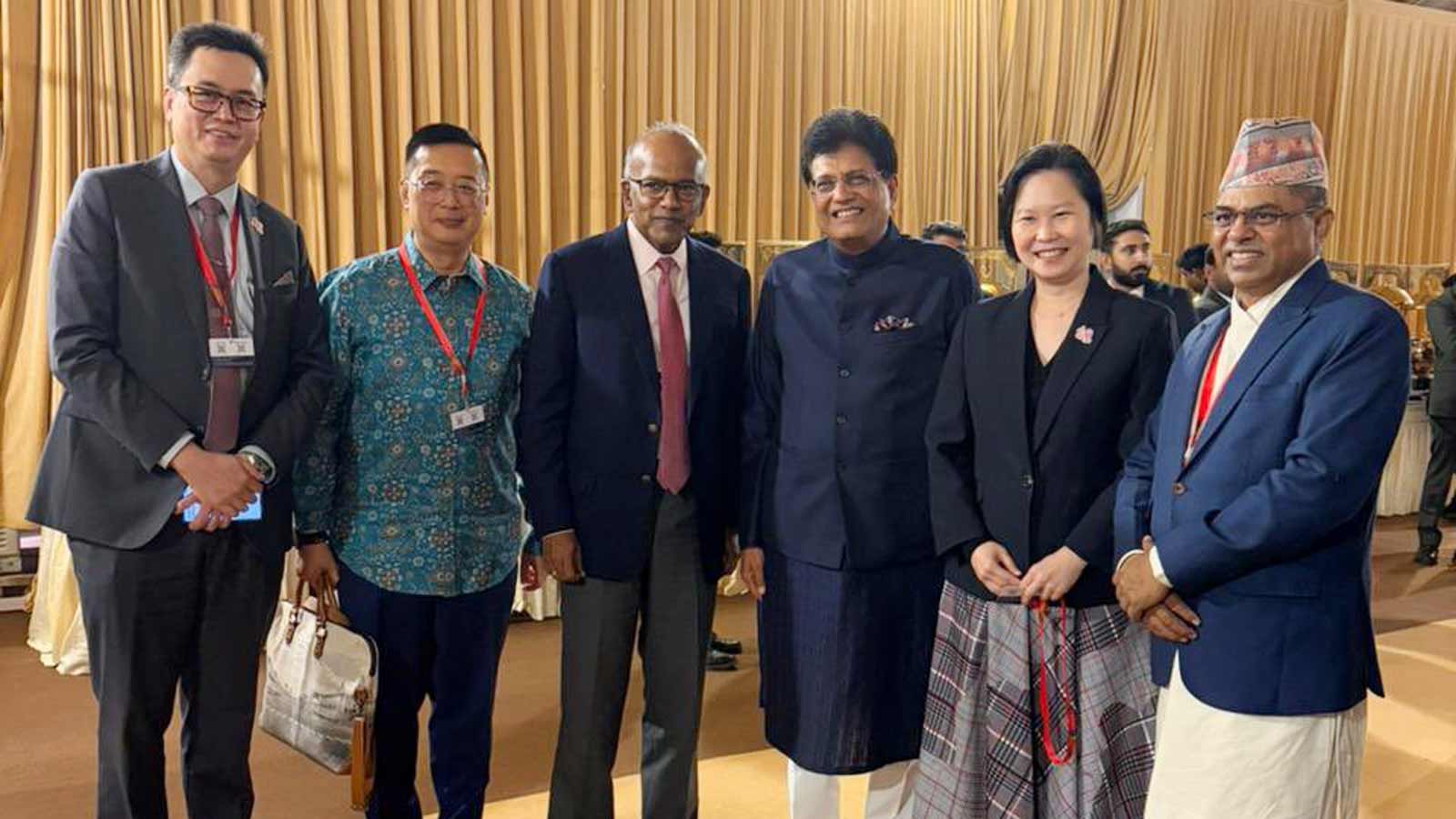Union Commerce and Industry Minister Piyush Goyal on Friday held extensive discussions with global leaders on trade, technology and investment opportunities on the sidelines of the 30th CII Partnership Summit, which drew participation from policymakers, industry leaders and international organisations.
Addressing the Summit, Goyal laid out three pillars for expanding global economic partnerships. He said the first priority was to boost two-way investments by easing trade barriers and enabling smoother movement of goods, services and capital. The second pillar, he added, focused on strengthening technology partnerships through co-development of frontier technologies and investments in high-impact innovation. The third pillar emphasised building trust through transparent governance and predictable policies that support long-term collaboration.
Reiterating Prime Minister Narendra Modi’s vision rooted in Vasudhaiva Kutumbakam—the philosophy that the world is one family—Goyal said India seeks deeper, mutually beneficial ties with its global partners.
Goyal met delegations from Africa, Europe, Latin America and Asia, along with leaders of international organisations. His engagements included a working lunch with the Russian and Singaporean delegations. Key bilateral sessions were held with the Director-General of the World Trade Organization (WTO), and ministers from Armenia, Mauritius, Angola and Venezuela, as well as representatives from Saudi Arabia and Mozambique.
In his meeting with WTO Director-General Ngozi Okonjo-Iweala, both sides exchanged views on ongoing global trade negotiations and underscored the importance of restoring trust in the multilateral trading system. Goyal reiterated India’s demand for a permanent solution on Public Stock Holding for food security, a fully functional two-tier dispute settlement system and balanced agricultural reforms. They agreed to maintain close engagement ahead of the WTO’s 14th Ministerial Conference (MC14).
In talks with Armenia’s Minister of Economy, both sides explored greater collaboration in the gems and jewellery sector. India proposed creating a Joint Working Group at the Joint Secretary level, with a potential visit planned for early 2026 to identify trade complementarities. Armenia highlighted renewable energy as a priority, while India sought improved access for pharmaceutical exports and raised concerns about non-tariff barriers affecting Indian pesticides.
During discussions with Mauritius, the two countries explored deeper economic cooperation, including technology partnerships and government-to-government procurement of essential commodities. Mauritius expressed interest in importing rice, milk powder and other goods from India. New Delhi, in turn, highlighted opportunities to increase services exports, particularly in IT and tourism. India also offered support in reducing Mauritius’ subsidy burden through digital public infrastructure solutions.
Talks with Angola centred on enhancing investment in agriculture, food processing and the natural diamond industry. Angola sought India’s cooperation in agricultural entrepreneurship, mechanisation and irrigation. Both sides also discussed collaboration in contract farming, food processing and the gems and jewellery sector.
The meeting with Mozambique covered logistics development, resilient supply chains, agriculture, education, skill development and cooperation in oil and gas. Both countries expressed interest in advancing a G2G supply chain for agricultural exports, including rice.
In discussions with Venezuela, the two sides agreed on the need to diversify their trade basket beyond oil and gas. They explored partnerships in critical minerals, pharmaceutical exports and wider investment opportunities for Indian companies.
The two-day CII Partnership Summit 2025, organised by the Confederation of Indian Industry along with the Government of India and the Government of Andhra Pradesh, provided a platform for countries and corporations to chart the future of global trade and investment. The event featured dialogues on technology, supply chains, sustainability and economic cooperation, reinforcing India’s growing role in shaping global economic partnerships.














